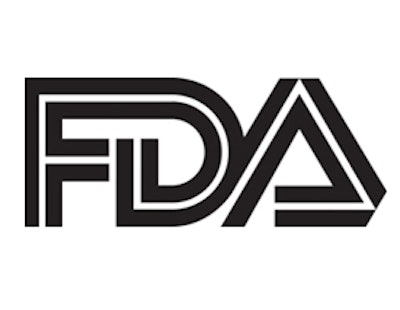
SILVER SPRING, Md. (FDA) — The U.S. Food and Drug Administration is requesting a budget of $4.5 billion to protect and promote the public health as part of the President’s fiscal year (FY) 2013 budget – a 17 percent increase over the FDA enacted budget for FY 2012. Industry user fees would fund 98 percent of the proposed budget increase. The FY 2013 request covers the period from Oct. 1, 2012 through Sept 30, 2013.
In addition to recommending new user fees to support the review of generic drugs and biosimilars, the FDA budget also contains increased funding for priorities such as import safety, medical countermeasures and research facilities to protect patients and consumers.
“These are austere budget times, and the FDA budget request reflects this reality,” said Margaret A. Hamburg, M.D., Commissioner of Food and Drugs. “Our budget increases are targeted to strategic areas that will help speed the availability of new medical products, address the challenges of increased globalization and allow FDA to fulfill its public health duties more efficiently. With FDA-regulated products accounting for about a quarter of each dollar that Americans spend, these budget priorities will benefit patients and consumers and strengthen our economy.”
Highlights of the FDA FY 2013 budget include:
- Protecting Patients Initiative (+$364 million) recommends new user fees to support FDA generic drug activities and to support development and review of biosimilar biological products. Biosimilar biological products are highly similar to biological products that are already approved for marketing in the U.S. FDA’s budget request for these user fees is consistent with the agreement reached with industry. The initiative also includes resources to equip state-of-the-art laboratory facilities on FDA’s White Oak, Maryland campus for research to protect patients and consumers.
- Transforming Food Safety Initiative (+$253 million) will bolster FDA’s efforts to build a strong, reliable food safety system – as envisioned in the landmark Food Safety Modernization Act (FSMA). With the support of new user fees, FDA will foster a prevention-focused domestic and import food safety system to protect the health of American consumers. Under this initiative, FDA is also proposing new user fees to support its cosmetic and food contact substance programs.
- Food and Drug Inspections in China: The Transforming Food Safety and Protecting Patients Initiatives include $10 million in new resources for FDA to enhance collaboration with our Chinese counterparts and increase the agency’s presence in and expertise on China. This investment will strengthen the safety of the food and drugs produced in China for export to the United States.
- Medical Countermeasures (MCM) Initiative (+$3.5 million) will help meet America’s national security and public health requirements for MCM readiness. Congress provided new resources in FY 2012 to support FDA’s role in protecting the United States from chemical, biological, radiological and nuclear threats, and from emerging infectious diseases such as pandemic influenza. The additional resources in FY 2013 will support science and partnerships to improve MCM development timelines and the success rates for MCMs. FDA will also expand technical assistance to developers, focusing on the highest priority MCMs.
- Data Consolidation and IT Savings (-$20 million) initiative will produce savings to meet the requirements of recent executive orders that promote government efficiency and assure environmental, energy and economic performance. FDA will also reduce redundant computer equipment and achieve other IT savings.
For more information:
The President’s FY 2013 budget for the FDA1
The FDA, an agency within the U.S. Department of Health and Human Services, protects the public health by assuring the safety, effectiveness, and security of human and veterinary drugs, vaccines and other biological products for human use, and medical devices. The agency also is responsible for the safety and security of our nation’s food supply, cosmetics, dietary supplements, products that give off electronic radiation, and for regulating tobacco products.


















